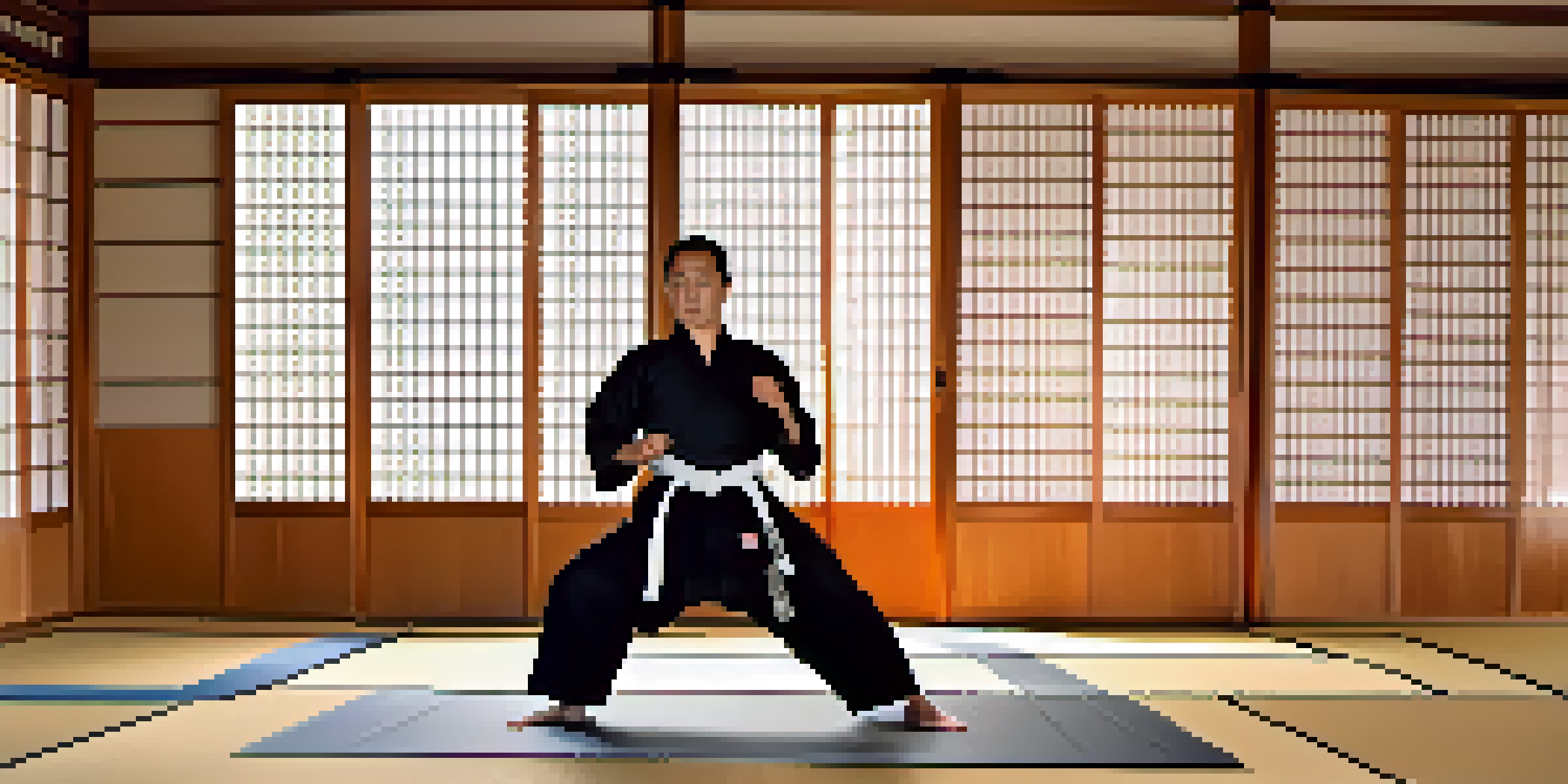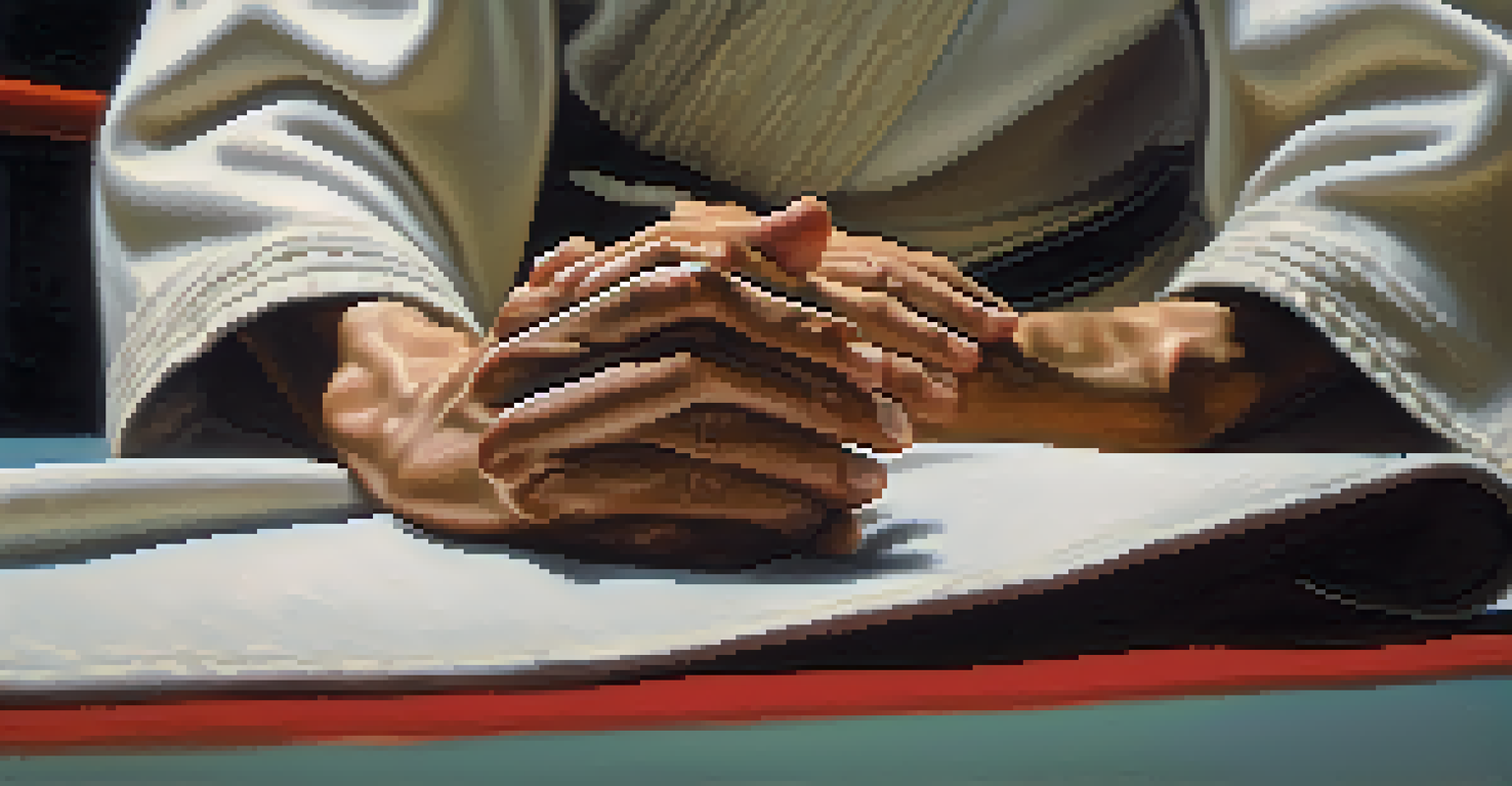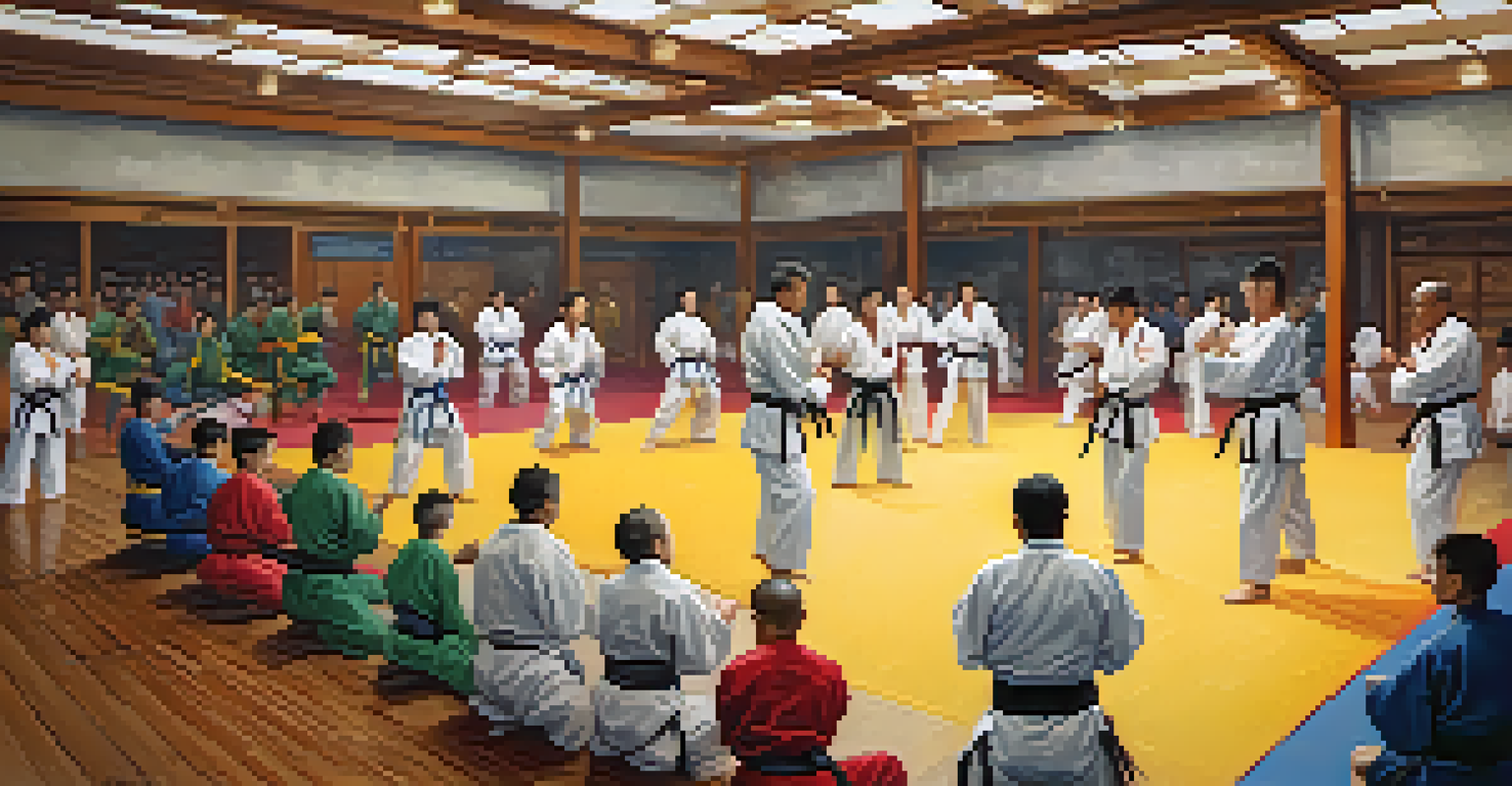The Impact of Stress on Martial Arts Training and Performance

What is Stress and How Does it Affect Us?
Stress is a natural response to challenges and demands in our lives. It triggers reactions in the body that can be both helpful and harmful. In martial arts, understanding stress is crucial, as it can impact your focus, energy levels, and overall performance on the mat.
It's not the stress that kills us, it's our reaction to it.
When faced with stress, the body releases hormones like cortisol and adrenaline, which prepare us for action. This is often referred to as the 'fight or flight' response. While this can enhance physical readiness, excessive stress can lead to fatigue and decreased concentration, which are detrimental during training and competitions.
For martial artists, managing stress effectively is key to maintaining balance. Learning techniques to cope with stress can not only improve training outcomes but also enhance mental resilience, allowing practitioners to perform at their best even under pressure.
Types of Stress: Eustress vs. Distress
Not all stress is bad; in fact, there's a positive side known as eustress. Eustress can motivate you and push you to achieve your goals, like preparing for an important tournament. This type of stress can enhance your performance by sharpening your focus and increasing your energy levels.

On the other hand, distress is the negative form of stress that can overwhelm you and hinder your performance. It can stem from various sources, such as personal issues, training pressures, or competition anxiety. Understanding the difference between these two types of stress is vital for martial artists aiming to harness the positive while mitigating the negative.
Mental Preparation and Resilience
Incorporating mental preparation techniques can help martial artists manage stress and improve overall performance.
By recognizing how eustress can be a driving force, martial artists can learn to channel their stress positively. This can involve setting realistic goals, celebrating small victories, and using visualization techniques to foster a constructive mindset.
The Role of Mental Preparation in Managing Stress
Mental preparation is a crucial aspect of martial arts training that can greatly affect stress levels. Techniques like visualization and mindfulness can help athletes prepare mentally for competition, reducing anxiety and improving focus. When your mind is clear, your body can perform better.
In the middle of difficulty lies opportunity.
Practices such as meditation and deep breathing exercises also play a significant role in calming the mind. By incorporating these strategies into your routine, you can create a mental toolkit that helps in managing stress, leading to enhanced performance in the dojo or during competitions.
Additionally, setting aside time for mental conditioning can build confidence. As martial artists become more adept at handling stress, they can face challenges head-on, transforming potential anxiety into a source of strength.
Physical Symptoms of Stress in Training
Stress can manifest physically in various ways, such as muscle tension, fatigue, and even injuries. For martial artists, these symptoms can impede performance and hinder progress. Recognizing these signs is essential for maintaining a healthy training regimen.
For example, a tight neck or shoulders may indicate that stress is affecting your body, which can limit your range of motion. Ignoring these physical symptoms can lead to more severe issues, potentially sidelining you from training or competitions.
Understanding Stress in Martial Arts
Stress can significantly impact focus and performance, making effective management essential for martial artists.
Incorporating recovery techniques, such as stretching, massage, and adequate rest, can help alleviate the physical symptoms of stress. By listening to your body and addressing these signs early, you can sustain your training intensity and performance.
The Importance of a Supportive Training Environment
A supportive training environment can significantly reduce stress levels for martial artists. The camaraderie between students and instructors fosters a sense of belonging, which can ease anxiety and create a more enjoyable training experience. Knowing you have a team behind you can make all the difference.
Open communication with instructors about stressors can also lead to tailored training approaches. When you can discuss your challenges, it helps in finding solutions, whether it’s adjusting your training schedule or developing mental strategies to cope with competition pressure.
These supportive relationships can enhance resilience and motivation. When you feel understood and supported, you’re more likely to push through challenges and remain committed to your training goals.
Utilizing Breathing Techniques to Combat Stress
Breathing techniques are powerful tools in managing stress, particularly in high-pressure situations like martial arts competitions. Simple practices, such as deep diaphragmatic breathing, can help calm your nervous system and improve focus. This makes it easier to stay present and engaged during training.
For instance, taking a few deep breaths before sparring can help clear your mind and reduce anxiety. This practice not only lowers stress but also enhances your ability to react more effectively during intense situations on the mat.
Eustress vs. Distress
Recognizing the difference between positive stress (eustress) and negative stress (distress) is crucial for enhancing performance.
Incorporating breathing exercises into your routine can lead to lasting benefits. Over time, these techniques can help you maintain composure and resilience, ensuring you perform your best even in the face of stress.
The Long-Term Effects of Chronic Stress on Performance
Chronic stress can have detrimental long-term effects on martial arts performance. It can lead to burnout, decreased motivation, and even physical injuries if not managed properly. Understanding these potential consequences is essential for martial artists who strive for longevity in their practice.
For example, a martial artist who consistently trains under high stress may find themselves struggling with motivation or facing frequent injuries. This cycle can be discouraging and may result in a decline in overall performance.

To combat the effects of chronic stress, regular self-reflection and adjustment of training plans are vital. By prioritizing mental health, martial artists can ensure they train effectively, find joy in their practice, and maintain peak performance levels.